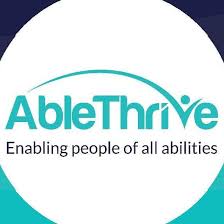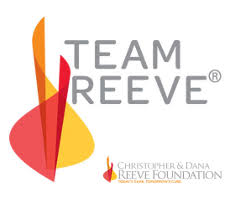|
John and I traveled for a day trip to Newport, Rhode Island for the first time. The landscape from the cliff walk brought the fjords of Norway to mind, a fusion of rippling water and majestic rock, oblivious to the passage of time.
Ben applied to several graduate schools across the country for a master’s program in literature. He decided to attend wherever he received the most financial aid. With acceptances in hand, Brandeis University won in Waltham, Massachusetts—the same city where John and I lived. All three of my kids would live close to us for the next school year. My doctor referred me to a specialist when the headache spiked, and my left arm prickled and hurt. I made an appointment with a physiatrist, a specialist in muscles and rehabilitation. Dr. Ariana Vora at Wellesley’s Spaulding office diagnosed my headache as cervicogenic: pain referred to the head from the cervical spine or soft tissues (or both) within the neck. Complicated by displaced jaw joints, fibromyalgia, and advanced arthritis. A body scan revealed an my unusually high level of arthritis literally everywhere. My neck, left elbow, right knee, and hands bothered me most. I was forty-nine years old, going on ninety. Dr. Vora ordered physical and occupational therapy to focus on my neck muscles in constant spasm. At one session, a patient complained loudly about over-the-counter medicine that completely eliminated her wrist pain because she hated taking pills. Whining about the absence of pain? I’d be happy if mine dropped from constant to sporadic. My physical therapist with daily headaches rolled her eyes at me in solidarity. I tried acupuncture, facet joint injections, and later, botox shots. I also drove to a shop in Brookline where an elderly Chinese man listened to the heartbeat in my wrist and sold me bitter, exotic herbs. Once. Daily exercise, meditating, and holistic approaches tamped down the headache to a lower base level. I appreciated my evolution of sorts: to be able to make time for me and not feel guilty about it. I valued myself more. I no longer thought of myself as weak and flawed for not getting all my ducks in a row. We all lived in the same messy pond, without perfection. I tried not to anticipate or worry about the next headache flare. I finally absorbed the idea of taking care of myself first which allowed me to give to others in a better way. I made extra efforts to connect with friends and family and started a gratitude journal. I had so much to be thankful for. Next: Beth's mosaic of squares! (Would you like to know about my brand-new Struggling with Serendipity book? Please click the links at the top of this webpage. Thanks!)
4 Comments
Back home in Ohio, I returned to my job on the Alzheimers unit at the Shawhan.
I tried to engage the residents to brighten the moment, the hour, the day. In Lorain on a weekend, John and I sang happy birthday to his sister, Jean, one of the last songs she’d sing when her Alzheimers progressed. Another day, Maria called me on the way to the emergency room at Mt. Auburn Hospital in Cambridge, Massachusetts. Beth, suddenly sick with strong nausea, headache, and fever, had asked her sister to take her to the hospital. I worried about sepsis. The leading causes of death for people with quadriplegia were pneumonia, septicemia (blood poisoning caused by sepsis), and suicide. The emergency room staff identified an infection and waited for other test results. After a few miserable hours, Maria lost her patience with the staff. An ambulance carried Beth to a Boston hospital, while Maria followed in her car. An attentive doctor understood quadriplegia. He ran more tests. By morning, Beth’s fever dropped, and he ruled out peritonitis and sepsis. The doctor released her with strong antibiotics and instructions to return to the hospital if anything worsened. I was already on Rt. 90 in Pennsylvania en route to Cambridge. Beth’s severe symptoms lessened by the time I arrived. I brought her chicken soup from Au Bon Pain and helped as much as I could for a few days. I encouraged her to slow down, though she quickly returned to her full schedule. Big changes approached. At home in Tiffin, I divided a lifetime of photographs into four piles, one for each of our kids and one for John and me. I threw away old albums and put the photographs in labeled boxes of memories. Our ordinary lives had detoured to less traveled roads—with more on the horizon. My first day as manager of a Tiffin, Ohio group home, I trained to administer meals to a resident with a feeding tube, followed by me training other staff. I liked the four men who lived at the home, and knew two of them from when I worked at the local institution. I worked 24-hour shifts, 3pm to 3pm, often three in a row. It simplified staffing the overnight hours, but challenged me, mentally and physically. Sleeping well at the group home rarely happened. I scrambled to get up to speed on preferences, goals, routines, behavior plans, staff scheduling, meal planning, grocery shopping, outings, medications, paperwork, and new state requirements. On my days off, I was on call.
The day-to-day responsibility for the health and welfare of four men was daunting. The men attended the county workshop for adults with developmental disabilities on weekdays. Ideally, that time would be used for administrative planning and paperwork. Instead, since the residents had multiple health issues, weekdays often included taking one of them to a doctor’s appointment. I learned complicated medication regimens, as well as scheduling regular appointments, ordering refills, and making sure all staff documented every small thing, every day, in the correct way. I often drove to the group home on my days off for at least a few hours, just to keep up. My agency's new quality control supervisor visited one weekday morning after the men boarded the workshop bus; she had been the manager before me of the same home. She pointed out missing papers in the resident binders, which I was aware of. I regret not being more assertive. I wish I’d spoken up and showed her my long to-do list that included the missing items. Papers she neglected to obtain as the previous manager. Instead, I stewed. Next, my agency’s director made a counterproductive decision about a resident’s behavior plan by caving in to pressure from a resident’s family. I typed up evidence to support a better approach, to avoid dependence on a walker he didn’t need. I met with the director to plead his case, to no avail. Later that day, the same resident threw a tantrum near midnight. Following the new behavior plan, I had to encourage him to use the walker by his bed on the way to the bathroom. He didn’t need one. The ill-advised plan guaranteed more acting out, increased dependency, and needless frustration all around. When his loud yelling finally ended, I poked my head into the other bedrooms to reassure and quietly tell the other residents everything was okay. Good intentions, bad outcome. The youngest resident thought my intrusion meant it was time to get up, so he jumped out of bed and started his morning routine. My attempts to explain and redirect irritated him. Nonverbal, he insisted on changing clothes and sat at the kitchen table in the dark. I tried to reason with him, saying it wasn’t time for breakfast. Agitated, he tried to tip over the table and would have succeeded, except the home had an unusually huge and heavy one. When he calmed down a bit, I brought him a bowl of his favorite cereal with milk. He finished and sat in his rocking chair in the living room, still angry. I kept him company while I wrote out the required incident reports. Next: A Difficult Decision! (This blog tells my family's story. To see more, click "blog" at the top of this webpage.)
As Beth’s sophomore year at Harvard began, we lived far apart for the first time. I bridged the 725 miles between Cambridge, Massachusetts and Tiffin, Ohio with phone calls, emails, and care packages. I also tried to help from a distance, to free up at least a little of Beth’s time for more important things, even though we both knew she could do everything she needed to by herself. I made travel plans for upcoming Paralympic swim meets. I responded to requests for details for newspaper articles and updated her resume for a reporter. I started a Challenged Athletes travel grant application for her and she finished it, adding her personal goals and the essay. I ordered medical supplies and wheel bearings, When she needed a new bag for the back of the wheelchair, I researched options, emailed her the best ones, and bought the one she selected. Beth took over repairs for her wheelchair, scheduling a service to come to her dorm only after the intermittent catching of one wheel progressed to a consistent and frustrating obstacle. Her dirty laundry piled up until she couldn’t find clean clothes to wear. Her priorities filled her days: swim training, classes, homework, volunteering, mentoring—and sleep. Grateful to be home, I reconnected with the rest of my family. John and I visited Ben in Columbus. John taught 3rd graders while Maria attended Heidelberg College full-time, worked at a video store, and led college tours, in addition to babysitting. She sang in the college choir and show choir. Maria also solidified her plan to move to the Boston area after she graduated early, in December of the following year. She had a double major in elementary education and special ed. Always busy, she wasn’t home much except to sleep, but we found times to meet at Taco Bell to catch up over burritos and sodas. I loved my suddenly wide-open life, but I also felt the need to get a job to help with finances, even though John never pushed me to work outside the home. Without a college degree and with little opportunity in our small town, I had few options. Any minimum wage job would limit me to a very low income. I thought about working at the Tiffin Center again, a state job and my highest wage option. However, John might retire after the next school year, which meant we might relocate. It wasn’t fair to the residents to purposely work at the center for a short time. Plus, the thought of starting over again in direct care in the most difficult module was daunting. Working at a group home could be difficult, too, but seemed a bit easier and more flexible than the Tiffin Center. I decided to bite the bullet and manage another group home for the same agency I worked for earlier. Before accepting, I toured the Tiffin home, a modern duplex in good condition. The physical environment was a big improvement over the dilapidated house I had managed before. I said yes. I wish I had said no. (This blog tells my family's story. To see more, click "blog" at the top of this webpage.)
The friendly lady who picked me up in the blizzard drove slowly up Mass Ave in Cambridge for over a mile. With barely one driving lane and no option to pull over, she stopped in the street and dropped me off two blocks from the Quad, saving the day for me. Surrounded by rolling hills of snow, I trudged down the middle of a closed side street the rest of the way, numb and battered by gale-force winds. Only one other pedestrian braved the blizzard on a street usually teeming with students and residents. Each of us could hardly even make eye contact, bundled to the max and looking down to cut the wind attacking our faces. I had never been so happy to reach and enter a building. In the warm room where I listened to the student and typed his words for his final exam, snow and ice melted in a puddle under my feet. After the final, I dreaded the walk ahead. On my way to Beth’s Harvard dorm, I stopped at the only business open, the Starbucks at the corner of Mass Ave and Shepard Street. A kind soul had shoveled a narrow trench from the door to the corner of the street. The snow on each side reached my chest. I sipped a hot chai tea and carried a latte for Beth for several blocks to her dorm. I climbed high snow hills on the ramp to the entrance. I called ahead and she met me at the door to let me in. Her latte was freezing by the time I arrived. I was glad to hear that her proctor had already offered to bring her meals from the dining hall. Drifting snow continued to block the dorm ramp after the blizzard winds died down, despite frequent clearing by college maintenance staff. No kind of wheelchair could get through, so I stopped to see Beth each day before or after my Coop shift. The sidewalks stayed impassable for a few days afterward, so I joined the many pedestrians walking in the streets close to cars. Compared to walking in the blizzard, trekking to the Quad and Beth’s dorm in bitter temperatures on icy roads and sidewalks felt like an improvement. When snow still blew, I pushed Beth’s wheelchair to and from the shuttle stop to resume swim practices. The shuttle drivers helped her up and down the icy hill at the entrance to the pool in the aftermath of the blizzard. Next: An Unanticipated Obstacle! (This blog tells my family's story. To see more, click "blog" at the top of this webpage.)
As 2005 began, Beth and I started the drive back to Massachusetts. John stressed over the snowstorm in our path. I didn’t worry about weather, but I respected it, even more so after I hit an ice patch on the highway through Buffalo and spun full circle across three lanes. I shrieked and steered out of it, suddenly winded. With no cars near us, I stopped for a moment and breathed deeply to counter the tidal wave of feelings that took me back to the earlier accident that injured Beth. Lucky for us, few cars braved the weather. Beth studied for finals and swam with the team for three practices a week at Blodgett, her new favorite pool, with two more practices each week with the assistant coach. Beth called me one morning, exhilarated. Coach Morawski asked her to race at a Harvard home meet for the first time. We ordered the team T-shirt for parents for me, with Beth’s name on the back, and celebrated with Finale desserts in the Square. At her dorm, she showed me a new gift with a big smile: the HWSD team’s warm up jacket and pants. At the early January home meet, I sat in one of the red seats in the section for parents, right above where the team congregated on deck. I proudly wore my shirt, but it wasn’t about me. I was thrilled for Beth. I also met friendly parents, understandably surprised to see me in their section and a girl in a wheelchair warming up on deck with the team. They no doubt would question their daughters after the meet. A full crowd gathered in the upper stands. Beth joined a procession led by the Harvard team captains, chanting in unison all the way. The young women gathered in a circle to wrap up the cheers before warming up on deck. I never thought I would see my daughter with a college swim team. Wearing a coveted Harvard swim cap, Beth wheeled by herself to the far corner of the huge pool and used the chair lift independently to get into the water. She swam under the plastic lane lines easily, no longer a challenge as it was at her first wheelchair games. To begin the 200 free, Beth pushed off the wall with her hands while others dove off the starting blocks. I watched the clock and jotted down the numbers every time she touched the wall. I sat forward in my seat, my excitement growing with each lap. The other girls finished the race and I held my breath as she swam the last lap by herself. I wished John, Maria, and Ben could have been there. Beth’s first race at Blodgett pool set a new short course S3 Paralympic American Record in the 200 free—and in every official distance along the way, the 50 and 100. Three new records in one race! The announcer shared the news with the crowd, and the young women on the Harvard team cheered the loudest. And not for the last time. Next: Blizzard! (This blog tells my family's story. To see more, click "blog" at the top of this webpage.)
The autumn months turned into a strange and lonely time for me. Every morning, I woke up early in a cramped apartment and made oatmeal. I hiked the half hour to my personal care assistant job, rain or shine. I memorized the routine and my role in it. I tried to avoid impatient reminders from the upperclass student if I paused too long. After my morning job, I had about four hours free. Anything Beth needed as she started her freshman year of college was my priority. I helped her pick up medical supplies in the mailroom. I took her wheelchair to get the bearings replaced, while she used an old back-up chair. I bought snacks for her or groceries for me, or carried my dirty clothes to a laundromat. (She still wouldn't let me do her laundry.) I usually stayed in Harvard Square in-between my jobs. I drank tea, read, and wrote, alone with a constant tension headache. Nothing made it completely go away, but many things aggravated it. My goal was to keep it at a lower level and avoid pain spikes. At 2 pm, I started second shift at the Harvard Coop. The crowds in the textbook department thinned out as the semester progressed, so my hours dropped to seven a day, five days a week. I stocked shelves and sent emails about ordered books. One evening, I recognized Wallace Shawn who played Vizzini in the classic, The Princess Bride. The movie had played more than a few times during popcorn parties at our home in Ohio. I also chatted with actress Sharon Stone. Coop employees often talked about frequent celebrity sightings. During my break, I sat outside in nice weather to eat my peanut butter sandwich, people watching and listening to talented street musicians. I eavesdropped on tourist conversations and made a game out of guessing the languages they spoke. This carried over to my work hours at the Coop, where I sometimes asked customers where they were from. At 9 p.m., I joined the line waiting to punch out before I trekked past Beth’s dorm to my apartment, a half an hour walk. I called John, Ben, Maria, Beth, or my parents on my walk home. I carried pepper spray and a whistle. Alone on dark Cambridge streets, I felt surprisingly safe with plenty of people all around. Each night, I poured a bowl of cereal or heated up a can of soup before showering and sleeping, with the notable exception of Friday evenings. To usher in the weekend, I stopped at CVS after work to buy a pint of Ben and Jerry's frozen yogurt, either half-baked or cherry garcia. A difficult decision. I always had good intentions of not eating it all at once. ;-) Next: A Big City Scam! (This blog tells my family's story. To see more, click "blog" at the top of this webpage.)
After the first weeks of practices, the head coach asked Beth to swim with the college team twice a week (up from once a week), plus two practices one-on-one with the assistant coach. With lane space an issue during team practices, Beth learned to stay to one side in the lane, shared with a teammate who passed her often. In Blodgett's public locker room, Beth removed her seat cushion and backpack before showering in her wheelchair (and soaking the wheel bearings) after every practice. I offered to buy a plastic shower chair for the locker room. Instead, she decided to ask the coach for one, but put it off. Always reluctant to ask for anything special. When the wheel bearings needed to be replaced, the wheels stopped moving freely, catching and sticking. I drove her wheelchair regularly to a repair shop in the next town to the west, Belmont, where they replaced the expensive bearings. The challenges for Beth of removing a wet swimsuit, showering, and dressing in her chair very slowly became slightly easier. At first, when she had class soon after practice, she wore sweatpants instead of her usual jeans. One weekday evening, Beth joined the Harvard team on an excursion to a Boston club to support two teammates in a burrito-eating contest. She heard a joke with an element of truth: The main reason to swim on a college team? To eat anything they wanted! ;-) The T stop closest to the club had no elevator, meaning Beth stayed on the subway and rode past it to the next stop, then backtracked several blocks. Two swimmers walked the extra distance with her. At the club, Harvard football players carried her up a flight of steps. The two girls in the contest ended up in second place at the end of a late evening. On the way back, Beth joined the group at the closest, inaccessible T stop and the football players carried her on the steps. Stretched thin, Beth joined the other swimmers only hours later for an early morning practice, commiserating over their exhaustion and sharing plans for naps. Next: My strange new Cambridge life . . . (This blog tells my family's story. To see more, click "blog" at the top of this webpage.)
My main reason to live off-campus in Cambridge? To be available for any kind of transition support. To make sure Beth was okay. We agreed I’d have a lot of free time, so I stressed about where to apply for a job. Beth asked me to go with her the first time she swam at Harvard's Blodgett pool. She didn't know what obstacles she might encounter. I saw many challenges. The walk over the Charles River on the Anderson Memorial bridge was impossible in any kind of wheelchair because of the very high and steep curb cuts. Beth pointed out that she could wheel in the street when she was by herself, even though aggressive drivers filled the narrow lanes and turned over crosswalks. She also could avoid the bridge by calling ahead for an accessible shuttle to drop her off at the sidewalk in front of the pool. From the sidewalk to the building entrance: a significant downward slope. Heavy doors to open. Crowded lanes during the open swim. A pool chair lift was temporarily out of service. In the locker room, Beth tried to put on a swim cap, as always. She could get it mostly on, but when it bunched at the top, she pulled it off and handed it to me. I lowered her from the wheelchair to the pool deck and set her mesh equipment bag next to her with her printed workout from Peggy and goggles. I retreated to the stands to watch her swim. She stopped at times to put on hand paddles or a tempo trainer from the mesh bag, or to move for another swimmer in the lane. It wasn't easy sharing a lane with strangers, and she finished the workout early after a half hour. The corners of the pool included a much higher side, so she couldn't get herself out the usual way. Instead, she put her back to the side edge, put both hands up behind her, and lifted herself out of the pool after several tries to sit on the deck. I checked with Beth and she reluctantly agreed for me to ask one of the life guards to lift her knees while I lifted her upper body to her wheelchair. In the locker room, no shower bench meant showering in her chair (minus the cushion), not a good thing for wheel bearings. Changing clothes in her wheelchair created the biggest challenge. One task she had mastered in high school was sliding on sweatpants over a wet suit, but at college, she would have classes after swim practice some days. I sat nearby as she pulled off the wet suit inch by inch, dried off, and tackled underwear and jeans. She let me help when the jeans bunched up under her and she needed to give her arms a break. When we left the building, the slope back up to the sidewalk was not gradual. She could wheel it very slowly, but that day she let me help with my hand on one of the push handles. At Bertucci's in the square, Beth ordered a margherita pizza and talked about the pool, happy that swimming at Blodgett was doable on her own. I returned her smile, grateful for her extraordinary perspective. 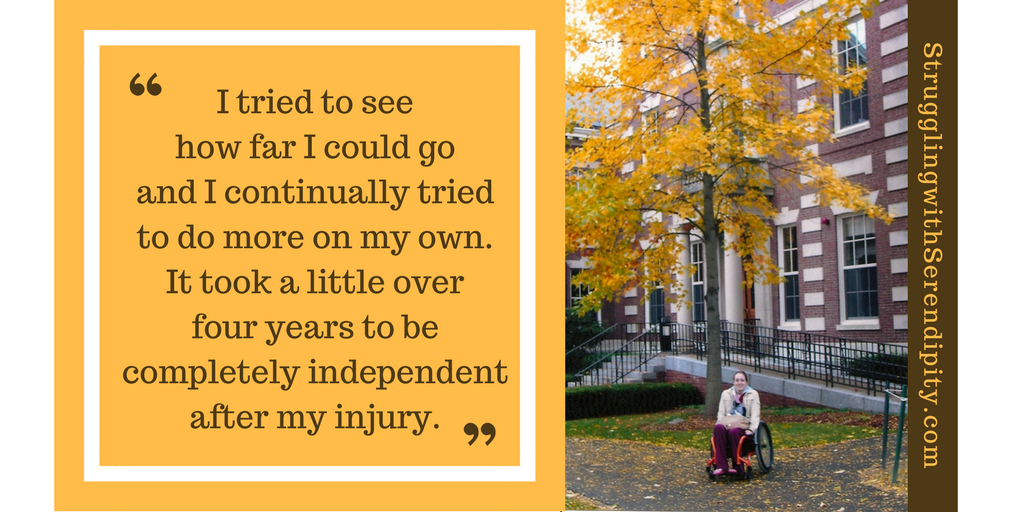 (This blog tells my family's story. To see more, click "blog" at the top of this webpage.) I carried my duffel bag up crumbling concrete steps to the dirty front door of a shabby apartment building in Cambridge, Massachusetts. My new roommate Janet greeted me with a residential parking permit for Beth’s car. Without it, parking cost a fortune. Janet led me through the entryway to a dilapidated apartment. The slanted wood floor creaked loudly as I crossed the tiny living room. Wall registers rattled and clanked. The kitchen consisted of a sliver of space with a metal shelving unit for food instead of cupboards. I placed my duffel on the worn wood floor of my small, empty, dark bedroom with no ceiling light. The cheap mattress and frame I ordered online would be delivered the next day, so Janet’s couch would be my bed the first night. A printed Google map led me to Target to buy food, bedding, and an inexpensive lamp. I missed a turn on the way back and inadvertently explored the curving streets of Somerville. My sense of direction failed me. In the dark, I searched for the few street names I recognized, or a public place to ask for directions that didn’t look too scary. When I finally arrived back at Janet’s, I put oatmeal, cereal, soup, peanut butter, whole wheat bread, bananas, and apples on the top metal shelf in the kitchen. The fridge door held my yogurt and milk. That night, I tossed and turned on Janet’s couch until the sun rose. The morning after move-in day, our second day in Cambridge, I carried Target bags with Cheez-its and laundry soap to Beth’s dorm. A brisk twelve-minute walk away. At Harvard’s computer center, she bought her first Apple computer with the student discount. On Massachusetts Avenue, called ‘Mass Ave’ by locals, she picked out a futon chair that converted into a single mattress for the suite’s common room. Beth decided on her own to test herself and handle all aspects of personal care by herself, even after Rakhi moved in that day. Consequently, Rakhi’s job description changed from personal care assistant (PCA) to simply a wonderful friend. Independence with a mostly complete C6-7 spinal cord injury required exceptional patience and significantly more time. “I tried to see how far I could go and I continually tried to do more on my own,” Beth said. “It took a little over four years (after my injury). The doctors told me they had never seen anyone with my type of injury become completely independent.” |
Cindy KolbeSign up for my Just Keep Swimming Newsletter by typing your email address in the box. Thanks!Categories
All
Archives
November 2022
|

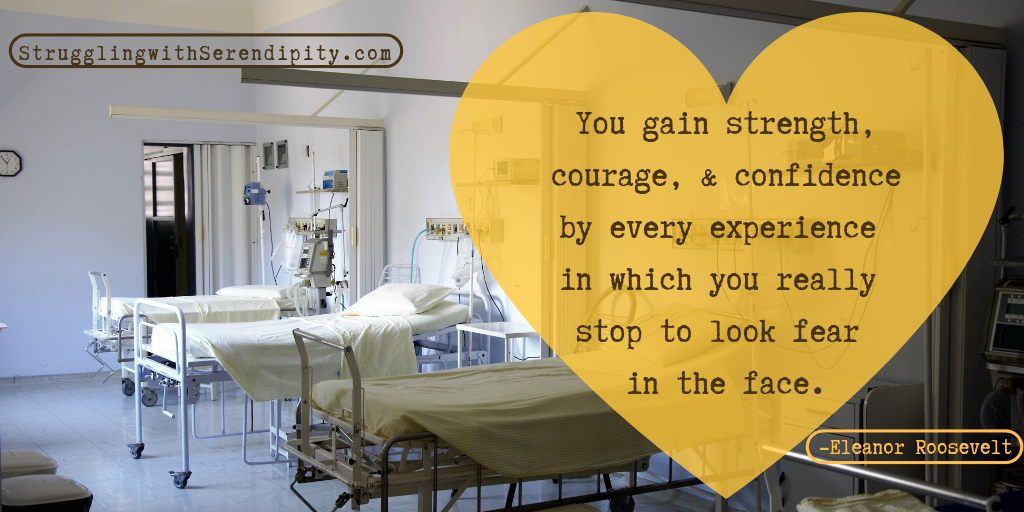
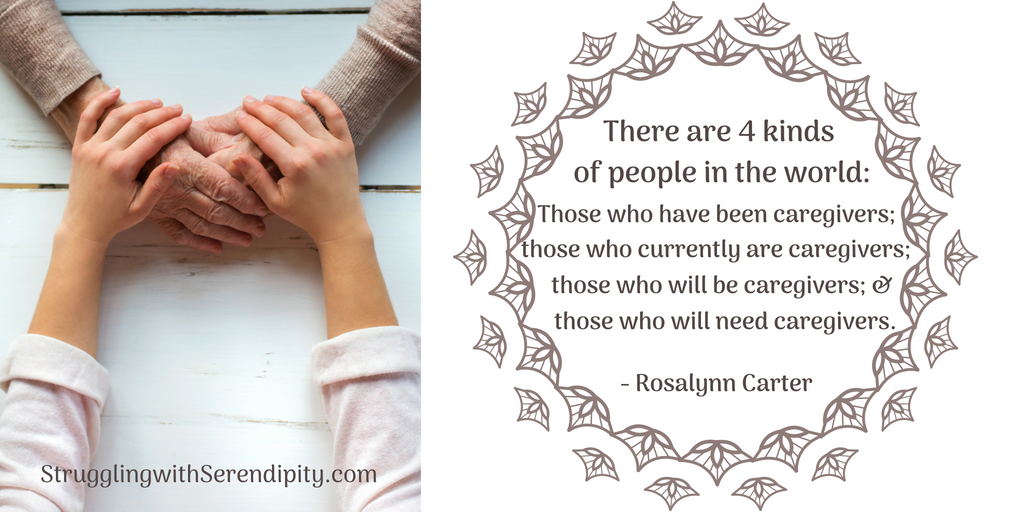


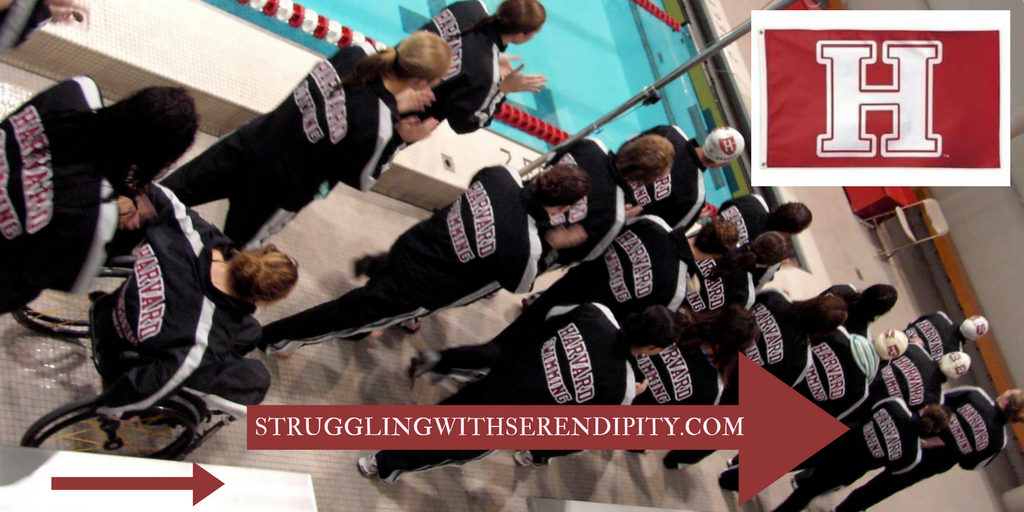




 RSS Feed
RSS Feed





